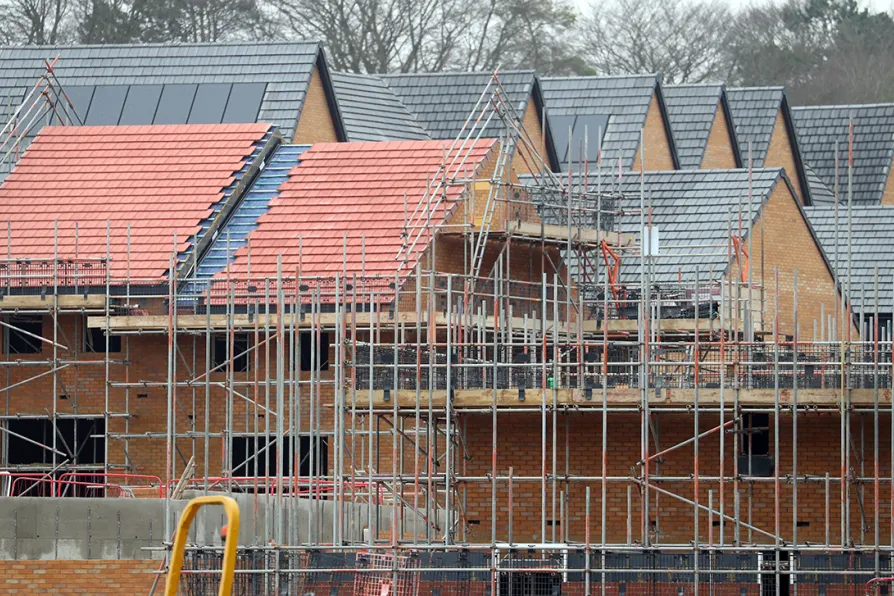
 Houses under construction on a housing development in Basingstoke, Hampshire, January 7, 2020
Houses under construction on a housing development in Basingstoke, Hampshire, January 7, 2020
INSTITUTIONAL racism in housing must be tackled seriously and urgently, Black Activists Rising Against Cuts (Barac) warned today.
The campaign group’s demand came after new research revealed black families facing homelessness are less than half as likely to get access to social housing in England compared to white families.
Academics from Heriot-Watt University’s Institute for Social Policy, Housing, Equalities Research analysed 750,000 records of official English statutory homelessness data, from 2019-22.
They found that 10 per cent of black families in the statutory homelessness system ended up in social housing, compared with 24 per cent of white families.
Only 11-12 per cent of most other minority ethnic groups in the same circumstances were able access social housing.
Researchers conducted focus groups with individuals who experienced homelessness, who also shared their experiences with private landlords.
“Strikingly, there was evidence of minoritised people feeling compelled to disguise their ethnic identity and migration status in an attempt to gain fair access to employment, housing and public services,” the report said.
“This included changing, or hiding, their name, nationality, accent and even aspects of their appearance such as their hair.”
The study also found that black families were six times more likely to live in overcrowded conditions, while Pakistani and Bangladeshi households were over seven times more likely.
Lead report author Professor Suzanne Fitzpatrick, said: “The evidence is stark: black people are almost four times more likely to become homeless and when they do access the statutory system, they face dramatically worse outcomes.
“We have quantitative evidence that their outcomes are worryingly poor, and qualitative evidence that they face racial discrimination.”
Barac UK co-founder Zita Holbourne said: “This report puts to bed the myth that racists and the far right try to spread of black and brown people ‘coming over here and taking all the social housing.’
“There is institutional racism in housing and it must be tackled seriously and urgently. The physical signs of ‘No Blacks, No Irish, No Dogs’ may no longer be displayed but the sentiment is still there.”
“This discrimination in housing towards racialised people has a knock-on impact on life chances and futures, forcing more people into substandard private housing with negative health outcomes, hiked up rents and ghettoism, forcing young people to live at home longer and/or live in overcrowded shared housing.
“The EHRC should be carrying out an investigation and using its enforcement powers to address housing organisations that are supporting systems of racism.”
A Ministry of Housing, Communities and Local Government spokesperson said: “Racism in our housing system is illegal, and we urge anyone who has suffered from discrimination to report it so it can be investigated and we can put an end to this disgraceful behaviour.”

Health leaders caution that flags put up by far-right activists are creating 'no-go zones' for NHS staff

Our housing crisis isn’t an accident – it’s class war, trapping millions in poverty while landlords and billionaires profit. To solve it, we need comprehensive transformation, not mere tokenistic reform, writes BECK ROBERTSON

Run-down homes cited by Social Workers Union as danger factor for children











